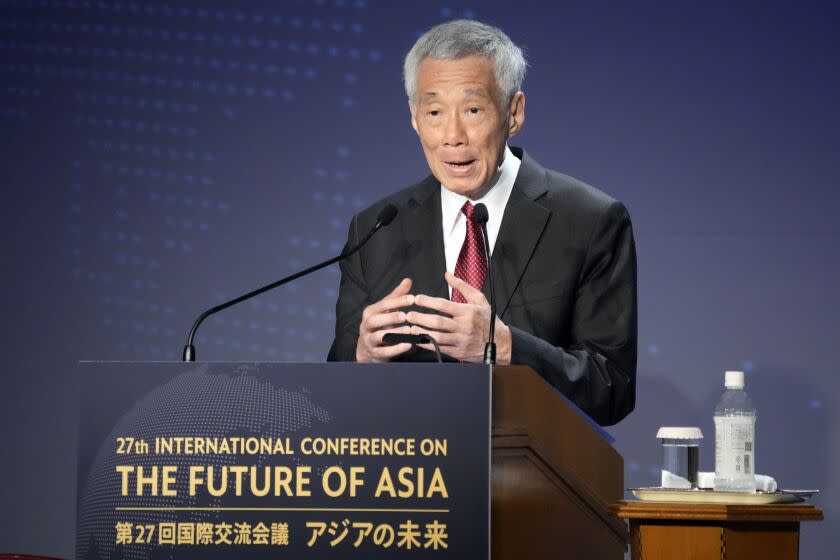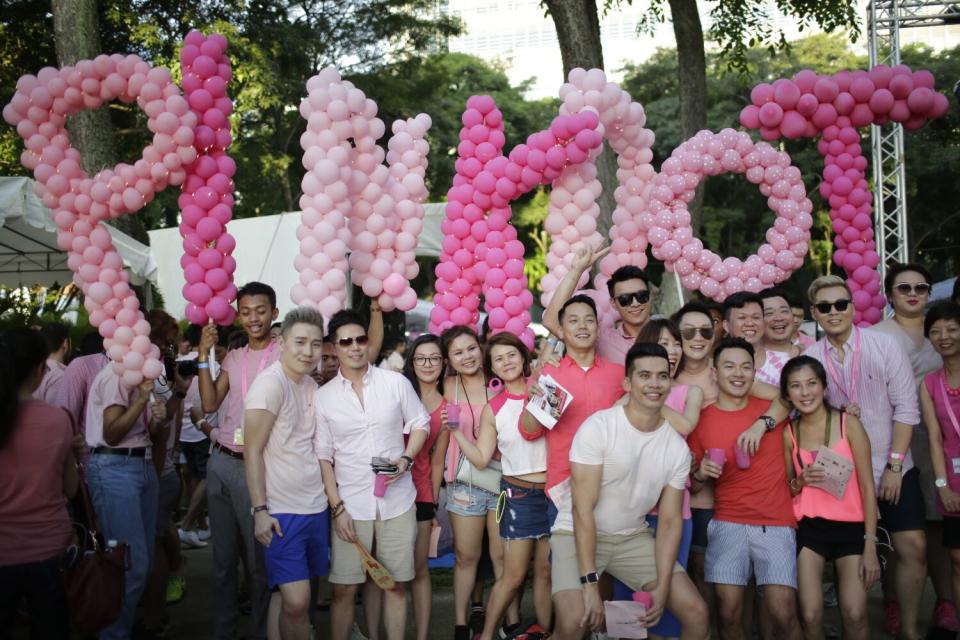Singapore will decriminalize gay sex but amend constitution to block marriage equality

- Oops!Something went wrong.Please try again later.
- Oops!Something went wrong.Please try again later.
Singapore’s prime minister said his country would repeal a long-debated law criminalizing sex between men, but he stopped short of granting equal rights to LGBTQ citizens by calling for constitutional changes to define marriage as being between a man and a woman.
The televised announcement Sunday by Prime Minister Lee Hsien Loong could soon bring an end to a colonial-era law known as 377A that marginalized and discriminated against generations of gay Singaporeans and seemed at odds with the country’s modern and international image.
Lee said attitudes on LGBTQ issues had shifted, allowing the country of 5.5 million to do away with a law the government previously agreed not to enforce, as a compromise between rights activists and conservative religious groups.
"This is the right thing to do and something that most Singaporeans will now accept," said Lee, whose father, Lee Kuan Yew, served as the country's famously conservative first prime minister. "This will bring the law into line with current social mores and, I hope, provide some relief to gay Singaporeans. But at the same time, most Singaporeans do not want the repeal to trigger a drastic shift in our societal norms."
Activist groups applauded the proposed repeal but warned that a constitutional amendment restricting marriage to heterosexual couples would perpetuate existing discrimination. Without recognition, same-sex couples are effectively blocked from accessing public housing, home to 80% of Singapore’s resident population.
"Any move by the government to introduce further legislation or constitutional amendments that signal LGBTQ+ people as unequal citizens is disappointing," said a statement from a group of 22 organizations advocating for equal rights, including Pink Dot SG, organizers of Singapore’s annual Pride rally.

"The repeal of Section 377A is the first step on a long road towards full equality for LGBTQ+ people in Singapore," the groups added. "Our immediate priorities in the wake of Section 377A will be to tackle the areas of discrimination that we continue to face at home, in schools, workplaces and in housing and health systems."
Lee said a constitutional amendment was needed to block future challenges in court to recognize same-sex marriage. Such a move will likely appease Singapore’s influential Christian and Muslim organizations that opposed the repeal of 377A.
The National Council of Churches of Singapore said in a statement that it supports a constitutional amendment but is concerned about "an intensification of the celebration of LGBTQ+ culture" as a result of the repeal.
The law prohibiting sex between men was introduced by the British colonial government in the 1930s. Other former British colonies have repealed similar legislation, including India in 2018 and Fiji in 2010.
Asia remains highly restrictive when it comes to LGBTQ rights. Gay sex is illegal in Malaysia, Indonesia and Brunei — countries in Singapore’s immediate vicinity. Taiwan is the only destination in Asia that recognizes same-sex unions; Thailand could soon be second after approving draft legislation earlier this year.
This story originally appeared in Los Angeles Times.

